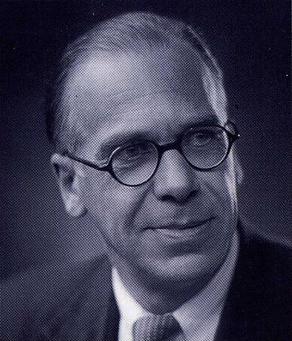
William Alwyn
11 September 1985 (aged 79)
- Composer
- Conductor
- Olive Pull
- Doreen Carwithen
Joe Alwyn (great-grandson)
Life and music[edit]
William Alwyn was born William Alwyn Smith in Northampton, England, the son of Ada Tyler (Tompkins) and William James Smith.[3] He showed an early interest in music and began to learn to play the piccolo. At the age of 15, he entered the Royal Academy of Music in London, where he studied flute, piano[4] and composition.[5] He was a virtuoso flautist and for a time was a flautist with the London Symphony Orchestra.[6] Alwyn served as professor of composition at the Royal Academy of Music from 1926 to 1955.[7]
Alwyn was a distinguished polyglot, poet, and artist, as well as musician.[7] In 1948, he became a member of the Savile Club in London. He helped found the Composers' Guild of Great Britain (now merged into the British Academy of Songwriters, Composers and Authors), and was its chairman in 1949, 1950 and 1954.[8] He was also sometime Director of the Mechanical-Copyright Protection Society, a Vice-President of the Society for the Promotion of New Music (SPNM) and Director of the Performing Right Society. For many years he was one of the panel engaged by the BBC to read new scores to help assess whether the works should be performed and broadcast. He was appointed a CBE in 1978 in recognition of his services to music.[9]
His compositional output was varied and large and included five symphonies, four operas, several concertos, film scores and string quartets.[10]
Alwyn wrote more than 70 film scores from 1941 to 1962. His classic film scores included Green for Danger (1944), Odd Man Out (1947), Desert Victory (1943), Fires Were Started (1943), The History of Mr. Polly (1949), The Fallen Idol (1948), The Black Tent (1956), The Way Ahead (1944), The True Glory (1945) and The Crimson Pirate (1952). Some of the scores have been lost, although many scores and sketches are now in the William Alwyn Archive at Cambridge University Library. In recent years CD recordings have been made. Some works, for which only fragmentary sketches remained, were reconstructed by Philip Lane or Christopher Palmer from the film soundtracks themselves.[11]
Alwyn relished dissonance, and devised his own alternative to 12-tone serialism. For instance, in his third symphony (1955–56), eight notes of the possible 12 are used in the first movement, with the remaining four (D, E, F, and A♭) constituting the middle movement, and all 12 being combined for the finale. The work was premièred on 10 October 1956 at the Royal Festival Hall by Sir Thomas Beecham.[12]
Alwyn's concerto for harp and string orchestra, Lyra Angelica, was popularized when the American figure skater Michelle Kwan performed to it at the 1998 Winter Olympics.[13]
Alwyn spent the last 25 years of his life at Lark Rise, Dunwich Road, Blythburgh, Suffolk, where he composed his Concerto Grosso no. 3 (1964), two operas, Juan, or the Libertine and Miss Julie, and his last major orchestral work, Symphony No. 5 Hydriotaphia (1972–73).[14]
Alwyn recorded his five symphonies as conductor for the Lyrita label in the 1970s, recordings that have since been reissued on CD. Most of Alwyn's orchestral and chamber music has more recently been recorded on CD for Chandos Records: the five symphonies were played by the London Symphony Orchestra, conducted by Richard Hickox.
Alwyn's opera Miss Julie has been recorded twice: for Lyrita, and in 2019 for Chandos, conducted by Sakari Oramo.